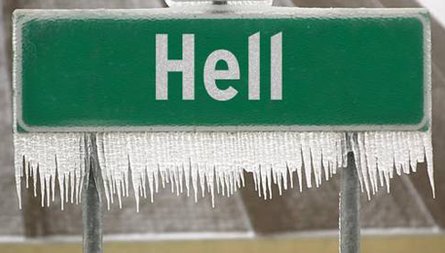Because, as suggested in the post in which I originally responded, I have written countless essay length responses to the many times you have repeated the same charges over the years. I get tired of repeating myself at such lengths.
John repeating that "things have changed" numerous times, doesn't make it true. You have never quoted Standards to prove your position. What Peter accomplished in one Post, you failed to do with your countless replies. Peter and others have previously stated that a PADI Instructor cannot change the criteria for diver certification (change or modify PADI Standards). When I've asked you if you could change the in-water/swim requirements, you've said no. This could result in putting a weak or non-swimmer into challenging conditions thus presenting an unacceptable hazard.
Not once did you or anyone for that matter (until today) inform me that in such a scenario, a PADI Instructor could request that the Standards be modified. You would just say that things have been changed.... Thankfully Peter provided me with the tangible proof that I've been asking for.
You say we are not allowed to teach tides, but how do we do OW dives in tidal dependent areas without doing so? ...None of it was in the standards, but if they were gong to get certified, they had to learn about it.
Regardless of the Agency, the Standards specify the requirements for certification. This is the yard stick. If the Standards are achieved, the certifying Agency will certify on the request of the Instructor. Unfortunately, other training is an option. There is no doubt in my mind that you are a conscientious Instructor. Unfortunately, not all Instructors act similarly. If it's not required, Dive Shops often trim their course time to the minimum. They ask the students to come back to take another program (more revenue generation). This is not limited to PADI. NAUI establishes Minimum Standards to which many Instructors don't teach beyond. Some don't even do that and certify anyway.
You say we can't teach altitude. I teach in Colorado--of course we talk about altitude. We give students a detailed handout to read before we do the dives, and we take care of it every time we plan and log a dive. All the instructors in our shop do this--not just me.
No. What I said is that PADI told me not to teach/examine Altitude Tables and make passing this exam a requirement for certification. Moreover, you may be able to teach many things, but as I understand PADI's position, you can't examine on the additional material (over and above Standards) and make this a condition of certification unless you have obtained a Waiver from PADI.
You say we are only allowed to teach for tropical conditions. Why is dry suit instruction required for classes that will use them? How are people certified by PADI instructors in Canada, Norway, Sweden, etc.? Are you under the impression that they somehow import tropical conditions to their locations?
No I didn't say that. What I said is that the PADI and NAUI Standards do not prepare a Diver to dive safely in all conditions. Standards are International. PADI realizes this; why else would they even have a Waiver? Some changes to the program are reasonable for some conditions and PADI would appear to recognize this. NAUI requires the Instructor to act in the best interests of the Student. The Instructor is encouraged to make any additions that s/he feel are reasonable without NAUI being consulted (over and above minimums, withstanding what NetDoc and I have discussed)..
...The article we wrote about an early focus on buoyancy (which you also claim we are not allowed to teach).
Again, I've never said that you were not allowed to teach a focus on buoyancy. John, this is preposterous! I've been focusing on buoyancy since the introduction of the buoyancy compensator (including when I was a PADI Instructor).
We get tired of responding to your allegations ....
What I get tired of is people misquoting me. Show me where I've said that you can't focus on buoyancy and can only teach in tropical conditions. Your deluded. You've stated several things that I have allegedly said (that I haven't) in one post! Don't you think you should get your story straight before you start critisizing people for saying something that they didn't say?
---------- Post added May 8th, 2013 at 01:43 PM ----------
I might have to add this to my sig line.
I have never said that you are always wrong.
Which proves my point: the instructor makes the real difference.
I would agree, this doesn't mean that the philosophy of the Agency and the Dive Shop isn't an important factor as well (as has been mentioned by others).
They also have an ethical obligation as do instructor trainers, course directors and evaluators. That being said, no two instructors are alike. Some are better. Some are far better and yes, a few are simply horrid. The diver to be should choose their instructor, for whatever agency, very carefully.
Agreed.
Last edited:




